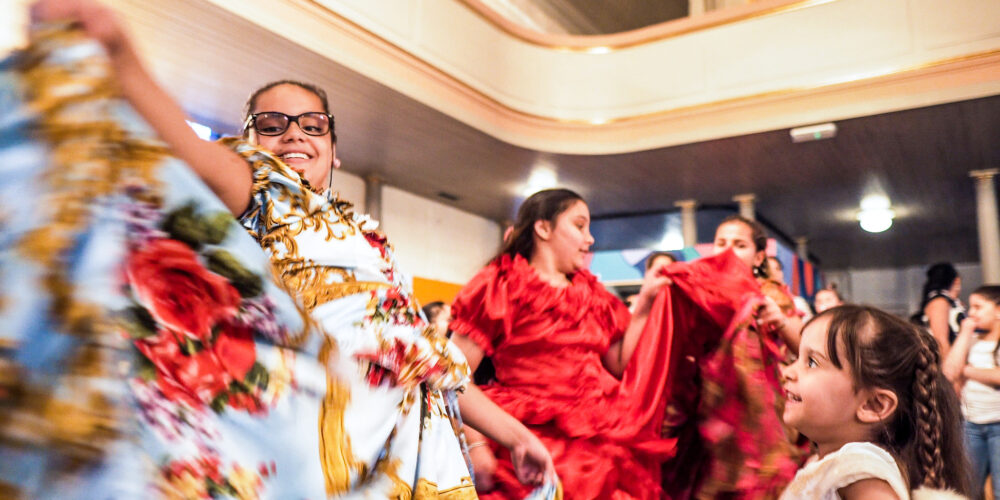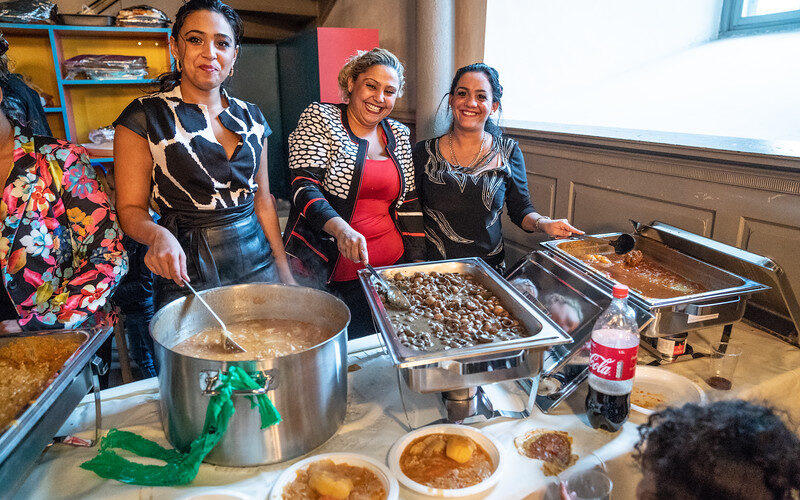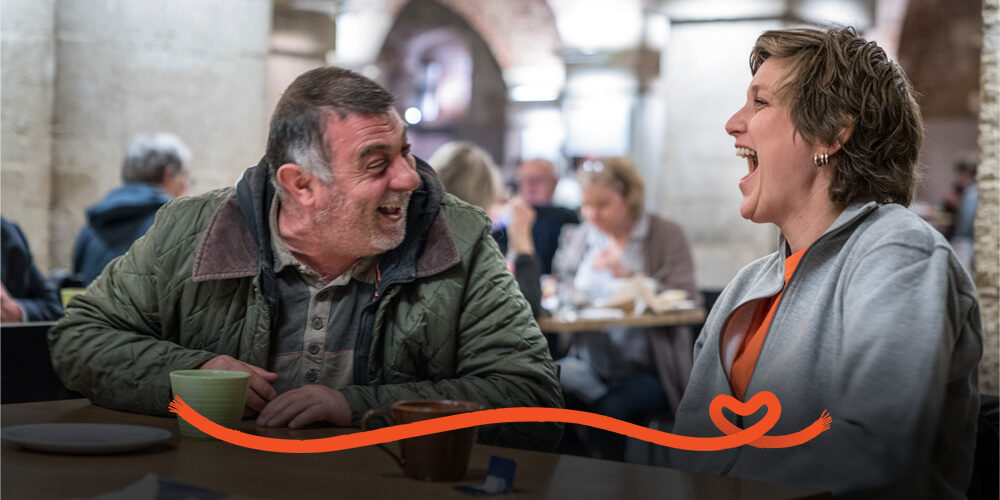Romano Kher Cultural Centre, Oslo, Norway

March 1, 2024
Romano Kher Cultural Centre /translated from Romani as "Roma House"/ is a Roma cultural and resource centre established in January 2018, located in the church of the Old Town in Oslo. On April 8, 2015, then Prime Minister Erna Solberg asked for forgiveness on behalf of the Norwegian government for the racist exclusionary policies directed at Norwegian Roma in the decade before and after World War II. Romano Kher was established as part of the Norwegian state's reparations for the national Roma minority. The cultural centre was founded in cooperation with the Norwegian City Church Mission and is housed in its building. The City Church Mission helps Norwegian Roma in their meetings with Norwegian institutions, running courses and programmes for schools that want to learn more about the minority group of Norwegian Roma, running recreational facilities for children and young people and spreading Roma culture through the use of public spaces.
The activities of the Romano Kher Cultural Centre
The Romano Kher Cultural Centre consists of a cultural centre, a mediation service and a leisure activities department for children and young people. In addition, it operates the media platform Nevimos Norvego, which has established the channel Romantika, which produces news and announcements in Romani and Norwegian on issues related to the Romani Norwegian minority in cooperation with the City Church Mission and London Business Memorandum. On 15 November 2021, the channel launched a new talk show, which is broadcast live by Romano Kerr. The show is called "Romano!".
Cultural Centre
The Cultural Centre organises culture days, film screenings and story nights to showcase the rich and diverse Roma culture to minority and majority audiences. Family days, parties and a celebration of International Roma Day on 8 April are also organised.
Mediation Service
It consists of counsellors and mediators of Roma origin as well as non-Roma Norwegian citizens. All counsellors have experience in working with Norwegian Roma, and offer individual counselling to Norwegian Roma, as well as advice and competence building for public services. The service also works to overcome prejudice against Norwegian Roma and advocacy to promote the rights of Roma as a national minority in Norway. In addition, its work includes school lectures based on dialogue.
Leisure activities - Kelasame club (let's play club)
The club provides leisure activities for children and young people, with homework help once a week in cooperation with a Norwegian school. The club has a boys' football team in cooperation with Stirling Football Club, and a girls' group that supports various activities.
Nevimos Norvego
"Nevimos Norvego is a media platform where content is created based on real stories of Roma in Norway and Europe.
History of modern Norwegian Roma
In addition to the families that have been associated with Norway since the mid-19th century, there are several other groups of Roma in the country. The largest groups are itinerant Roma from Romania, refugees from the former Yugoslavia and refugees or their descendants from Slovakia.
Travelling Roma from Romania
There are currently several thousand so-called Travelling Roma in Norway. This means that they reside in Norway for one part of the year and in their home countries for the rest. Most of them are from Romania, but some are from other countries in the Balkans and Eastern Europe. Travelling Roma started arriving in Norway after Romania became a member of the EU in 2007. In Romania, Roma face strong discrimination and marginalisation. The main reason why so many of them leave the country in search of a better life is unemployment and extreme poverty. Most of them leave their families in their home country, which they support on the income they receive in Norway. Many of them save money to build or renovate their home or for medical problems.
Travelling Roma have often been the subject of negative treatment in the media and public debate. In many communities, Travelling Roma have been persecuted and often stripped of their belongings during clean-up operations. Most itinerant Roma in Norway earn their living primarily through begging, bottle collecting, street vending, street music or short-term work commitments.
Roma from Former Yugoslavia
The wars in the former Yugoslavia, especially in Bosnia (1992-95), forced many people to flee. Some of the refugees who arrived in Norway during these years belonged to the Roma minority. Most of them speak the dialects Arli or Gurbety. There is not much information about this group, as very few of them openly identify themselves as Roma in Norway. They simply call themselves Bosnians, Serbs or Albanians. During the Yugoslav wars the Roma were subjected to brutal oppression. They were often accused of being spies or otherwise in league with the enemy.
Roma from Slovakia
Over the last 20 years, many Roma of Slovak origin have intermarried with members of the Norwegian national Roma minority. Most of them have fled from Czechoslovakia to Sweden, mostly to Skåne, since the late 1960s. This group also belongs to the Vlach Roma group, which means that they also have a historical connection with the land now known as Romania. Although the Roma from Slovakia also speak Romani as their mother tongue, they speak a slightly different dialect to that practised by families with long-standing links to Norway.
The project "I have a dream" is implemented with the financial support of Iceland, Liechtenstein and Norway under the Active Citizens Fund of Bulgaria within the Financial Mechanism of the European Economic Area. All responsibility for the content of the document is borne by the Association Liberal alternative for Roma civil union - LARGO in partnership with KUN Center for Equality and Diversity - Norway and under no circumstances can it be assumed that this document reflects the official opinion of the Financial Mechanism of the European economic space and the Operator of Active Citizens Fund Bulgaria. www.activecitizensfund.bg .
I Have a Dream project is being implemented with financial support from Iceland, Liechtenstein and Norway under the EEA Financial Mechanism. The main goal of the project "I have a dream" is to test, implement and disseminate innovative methods for empowering Roma women and girls through direct advocacy.







